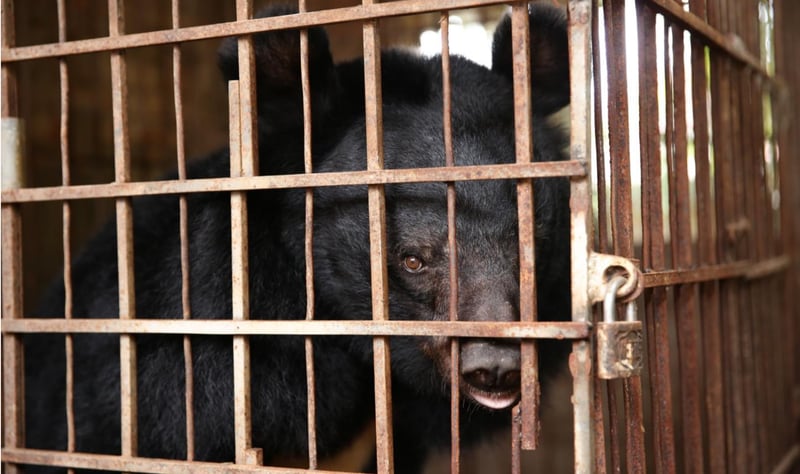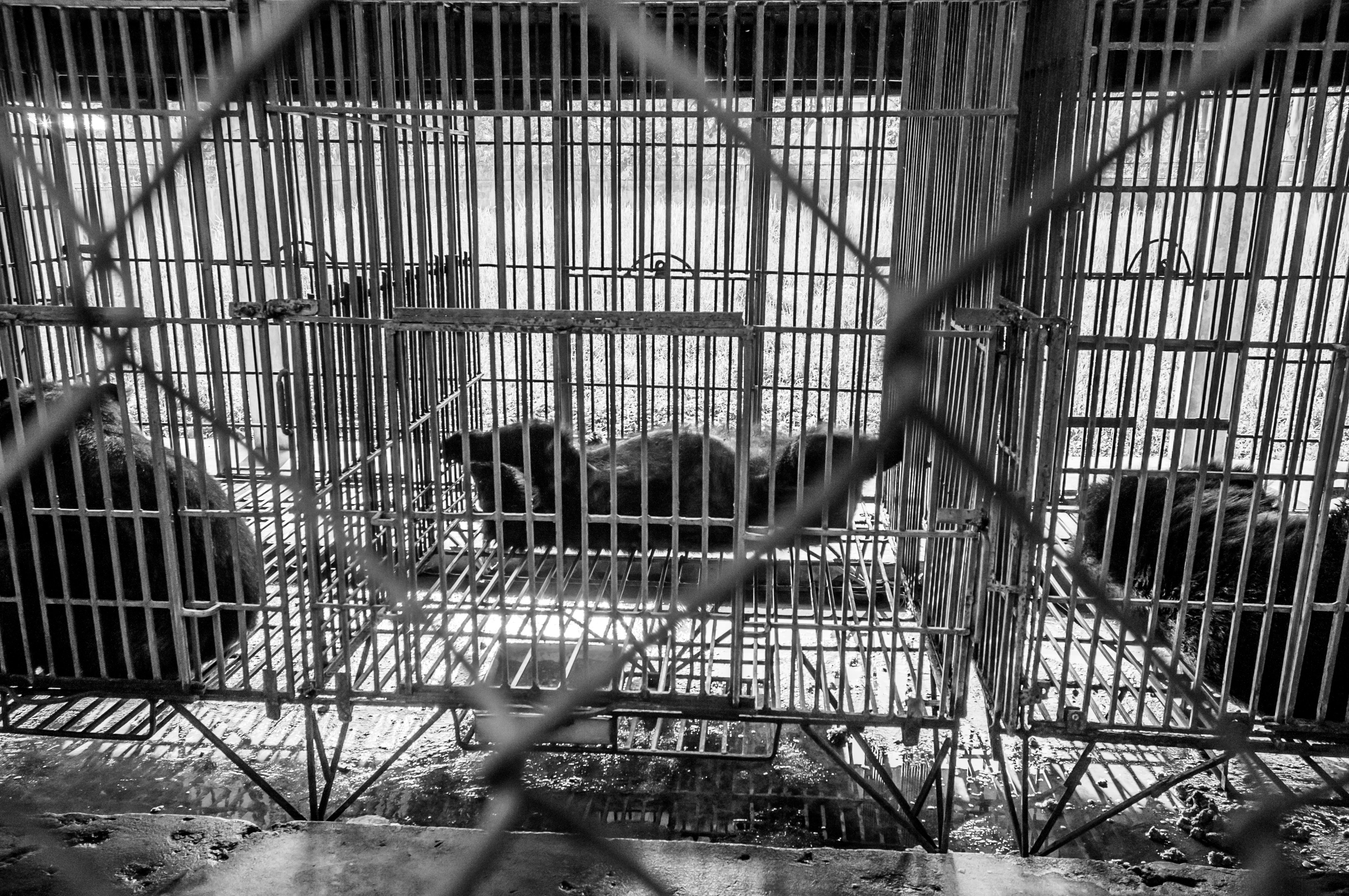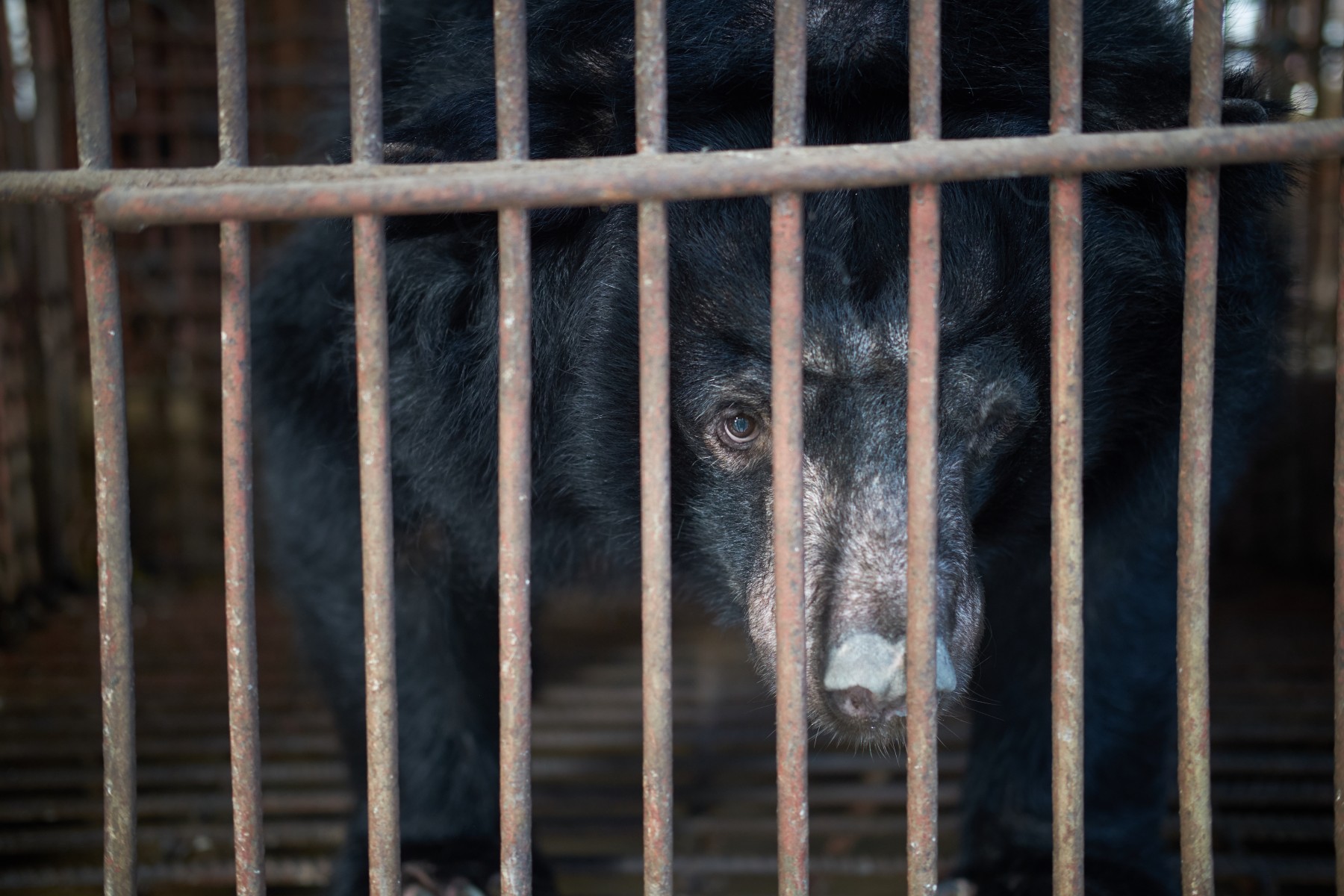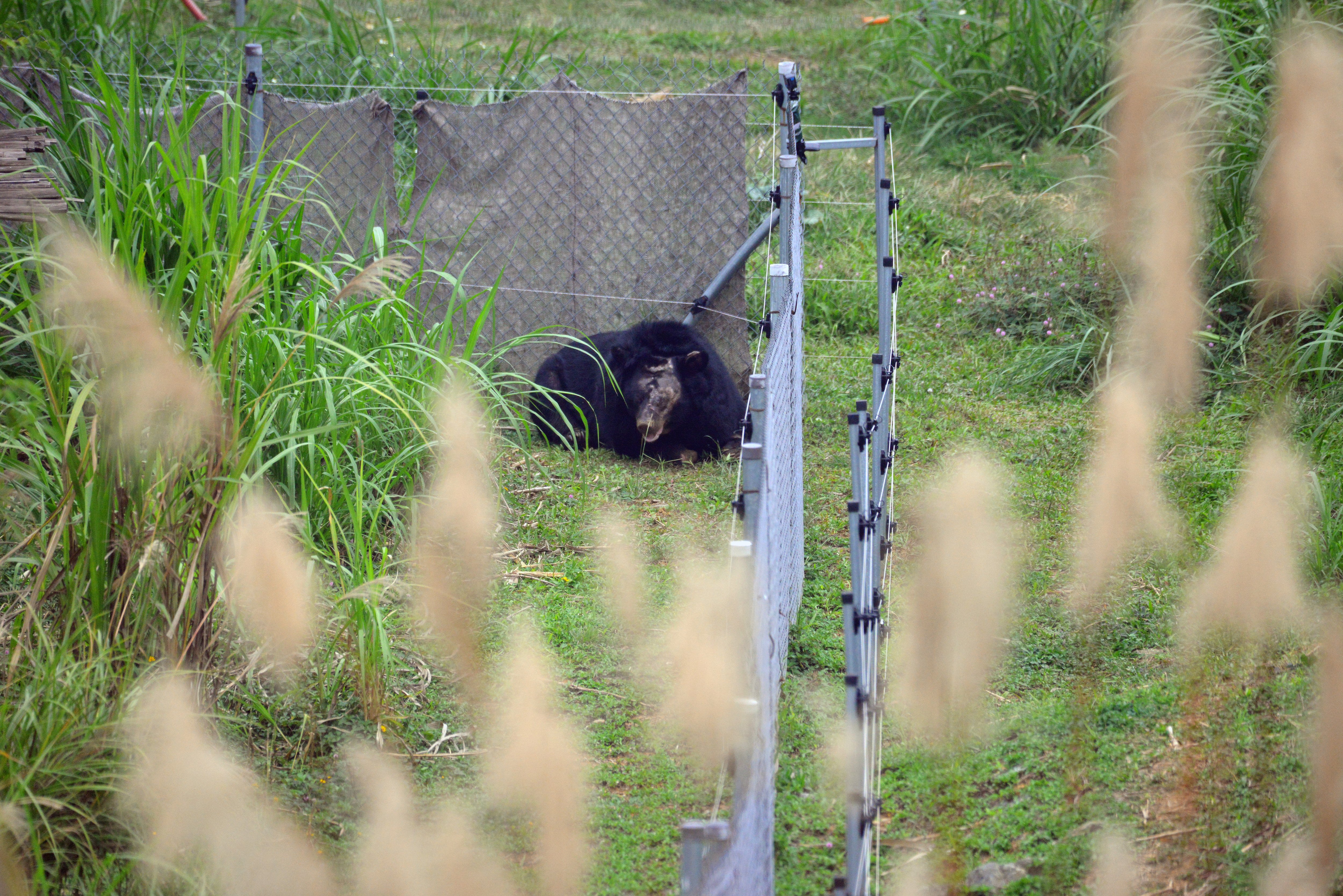
Bears Are Bred For Profit. Here’s How World Animal Protection Is Ending That.
Blog
World Animal Protection’s latest report details the cruelty bears face when bred for medicine.
(This blog post is part of a series that draws from World Animal Protection’s groundbreaking Bred for Profit report.)
World Animal Protection’s latest report, Bred for Profit, estimates that at least 5.5 billion wild animals are bred specifically to be used in exploitative industries each year. Millions of wild animals are sold as pets, for entertainment or tourist attractions, or for luxury items, fashion products, ornaments, or traditional medicine.
In these billion-dollar industries, wild animals suffer due to malnourishment, disease, stress-induced behaviors, injuries, infected wounds, cannibalism, and even premature death. One species who suffers in these cruel wildlife farms is bears.
In Asia, bears are farmed for their bile, a digestive fluid found in their gallbladder that has been used in traditional Asian medicine for thousands of years. Approximately 20,000 bears are kept on dozens of bear farms in China, and their bile is cruelly extracted from bears throughout their lives.
Asiatic black bears, the species used for bear bile farms, undergo immense suffering both physically and psychologically. They often develop sores, skin conditions, hair loss, bone deformities, injuries, swollen limbs, dental and breathing problems, diarrhea, and scarring, along with battling parasites.

While captivity is already torture for wild animals—as their needs can never be met like they can in their natural habitats—the “free-dripping fistula technique” farmers use to collect the bile is excruciating. It involves inserting a catheter into a surgically created canal into the bear’s gallbladder. Though medical complications often follow, this technique allows the bile to be drained daily.
Because of the stress of captivity and undergoing painful procedures for bile collection, bears on these commercial farms show signs of stereotypical behavior (repetitive movements that serve no purposes, such as swaying, rocking, or pacing back and forth), excess inactivity, and self-mutilation.
In an attempt to stop a bear from self-mutilating and harming the farmers, they’re painfully declawed and their teeth are often forcefully removed.

World Animal Protection has been working for decades to end the cruel bear bile industry around the globe and stop the sale of its products.
In fact, in 2020, World Animal Protection US alerted the New York State Department of Environmental Conservation (NYSDEC) that bear bile products were being offered for sale in at least ten traditional medicine stores in New York City’s Chinatown—despite legal prohibitions of their importation, production, possession, and sale. Following a months-long investigation, New York State authorities seized thousands of dollars of bear bile products.
Globally, our team and partners around the world continue to rescue bears from cruel bile farms. In 2022, after World Animal Protection stepped in to negotiate her surrender to a sanctuary, Tu Do was rescued and bear bile farming ceased in Son La Province, Vietnam. Thanks to our partners at Education for Nature Vietnam (ENV) and FOUR PAWS, Tu Do is living out the rest of her days in sanctuary.
Additionally, alongside Education for Nature Vietnam (ENV) and Animals Asia Foundation, three captive Asiatic black bears were rescued from a bear bile farm in 2021—ending bear bile farming in the Lang Son province of Vietnam.

In October 2023, World Animal Protection, Vietnam’s Forest Protection Department (FPD), and FOUR PAWS rescued Na from a bear bile cage. Now, she lives at the FOUR PAWS sanctuary in Ninh Binh, where she receives veterinary care, has space to roam, and is close to nature with 45 other Asiatic black bears.
While we continue to work on the ground to rescue bears from cruel situations and inspire individuals to switch to animal-friendly traditional medicine (such as plant-based alternatives), we could not be more grateful to the animal champions who continue to support our work through donations. Because of you, World Animal Protection has helped rescue dozens of bears in the last decade and sent them to sanctuaries to live their lives as naturally as possible, without being exploited for profits, while still receiving the care they deserve.
Please consider joining The Wild Side to support our work protecting animals worldwide, including bears exploited for bile. Your monthly donation ensures that we can continue protecting bears and other animals from cruelty through education, legislation, and direct action. Donate today!
Before You Go!
As part of actions our supporters can take following our Bred for Profit report, we are asking people around the globe to sign our petition demanding the Thai government enact laws to ban elephant breeding. Our team in Thailand has collected over 50,000 signatures so far. Now we need your help to show that there is worldwide support!